Innovation
Overview
Our Yumin Primary School Innovation committee drives the innovation framework to promote a school culture of innovation and sustainability excellence. Adapted on MOE's Eco Stewardship 4C framework, there is infusion of 21st CC skills and STEAM related pedagogies and activities into a four-pronged Yumin Innovation Framework.
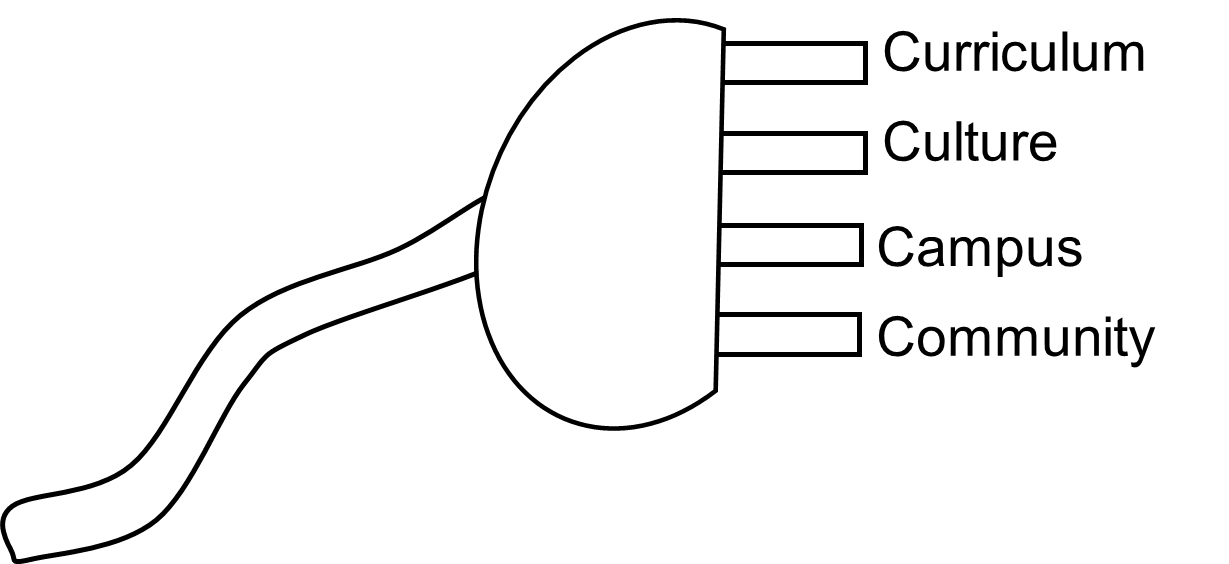
Diagram 1: Four-pronged Yumin Innovation framework, adapted from MOE's Eco Stewardship.
4C: Curriculum
The Yumin Innovation Programme focuses on sustainability and STEM projects across various levels to cultivate essential 21st-century competencies, as shown in the diagram below.
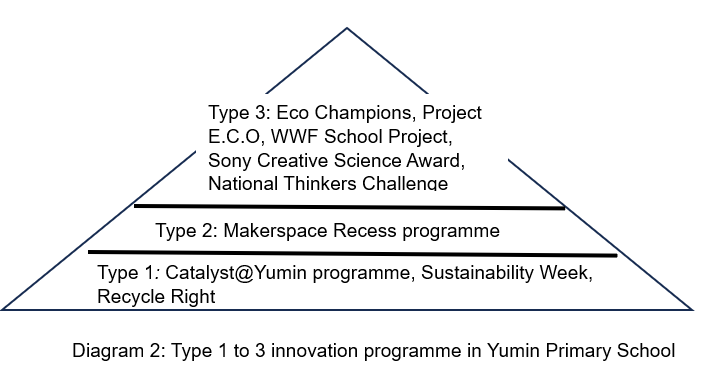
Students engage in hands-on learning experiences that promote critical thinking, problem-solving, and creativity while addressing real-world environmental challenges. Projects are tailored to each grade level, allowing students to explore topics such as waste reduction, energy conservation, and the importance of biodiversity preservation. This interdisciplinary approach not only enhances students' knowledge but also prepares them for future challenges in an ever-evolving world.
To provide a thinking routine to help cultivate critical and creative thinking, the team adapted the Engineering Thinking process and came up with APP IT, as shown in the diagram below. From Type 1 to Type 3, students utilise APP IT to understand the problem presented to them and do more research on it. Students then prototype, test and improve their product.
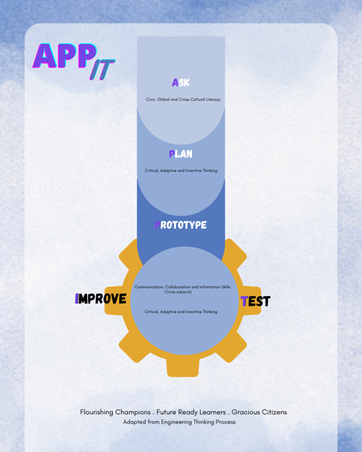
Diagram 3: APP IT Design Thinking framework
Type 1
Catalyst @ Yumin
The Applied Learning Programme (ALP) at Yumin Primary School titled Catalyst@Yumin, focuses on sustainability to equip students with essential 21st-century competencies. Through programming and tinkering projects, students explore environmental issues and develop solutions. The program fosters critical thinking and creativity, preparing students for future challenges while promoting a sustainable world.
The table below summarises Yumin Primary signature programme, anchoring on sustainability.
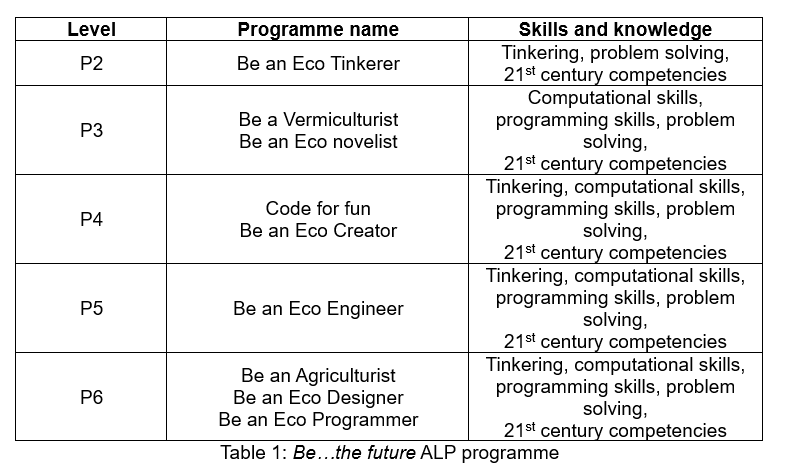
P2 ALP: Be an Eco Thinkerer
In our P2 ALP program, students learn about reducing and recycling using recycled cardboard to create a marble maze. This hones their tinkering skills, fosters creativity and practice problem solving skills.
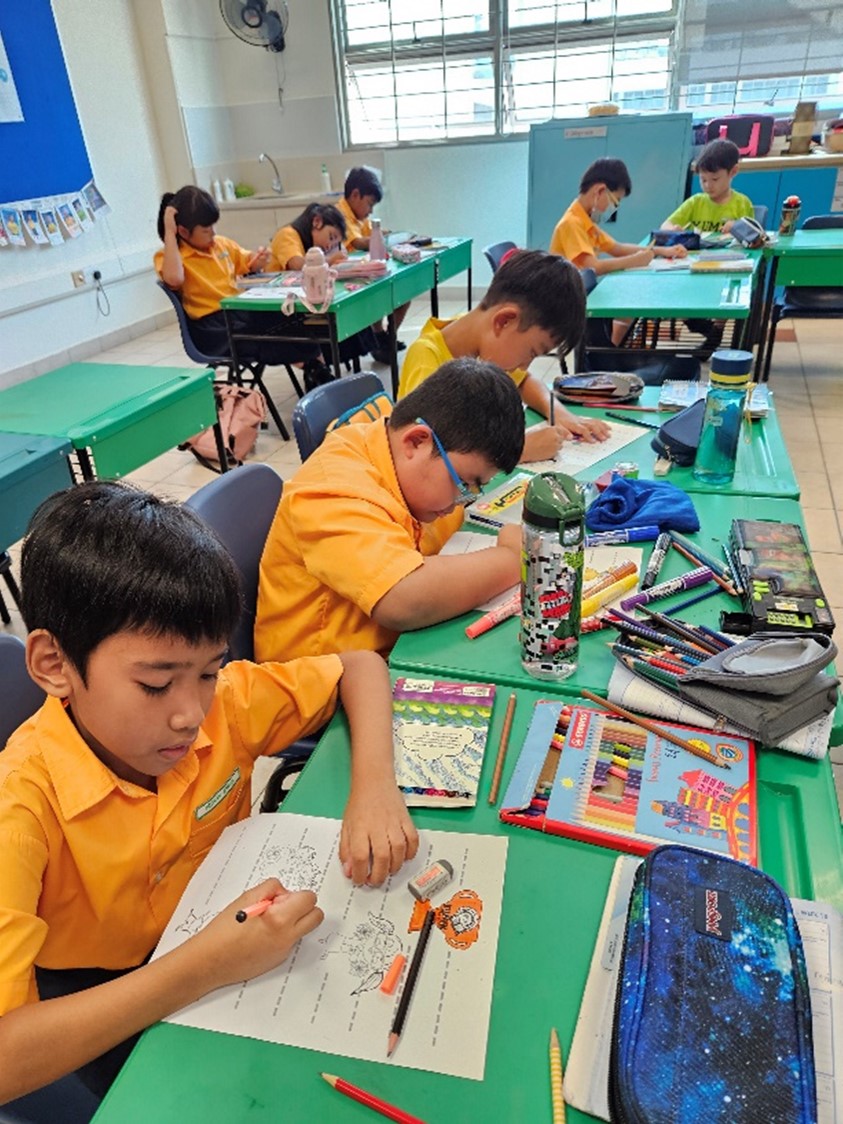
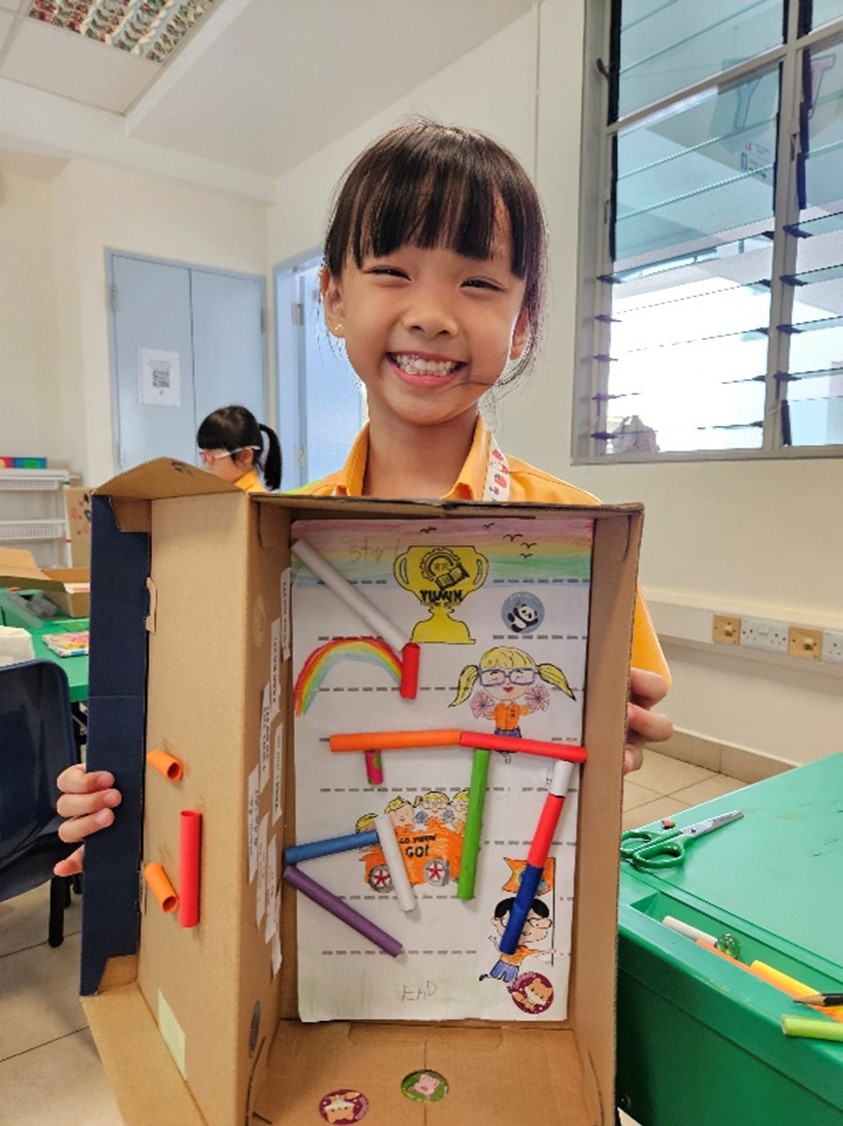
P3 ALP: Be a Vermiculturist and Eco Novelist
During Be a Vermiculturist, students learn about food waste management and how to code a micro:bit to monitor vermicomposting conditions. This hands-on experience teaches them about sustainable practices and using technology to solve real-world problems.
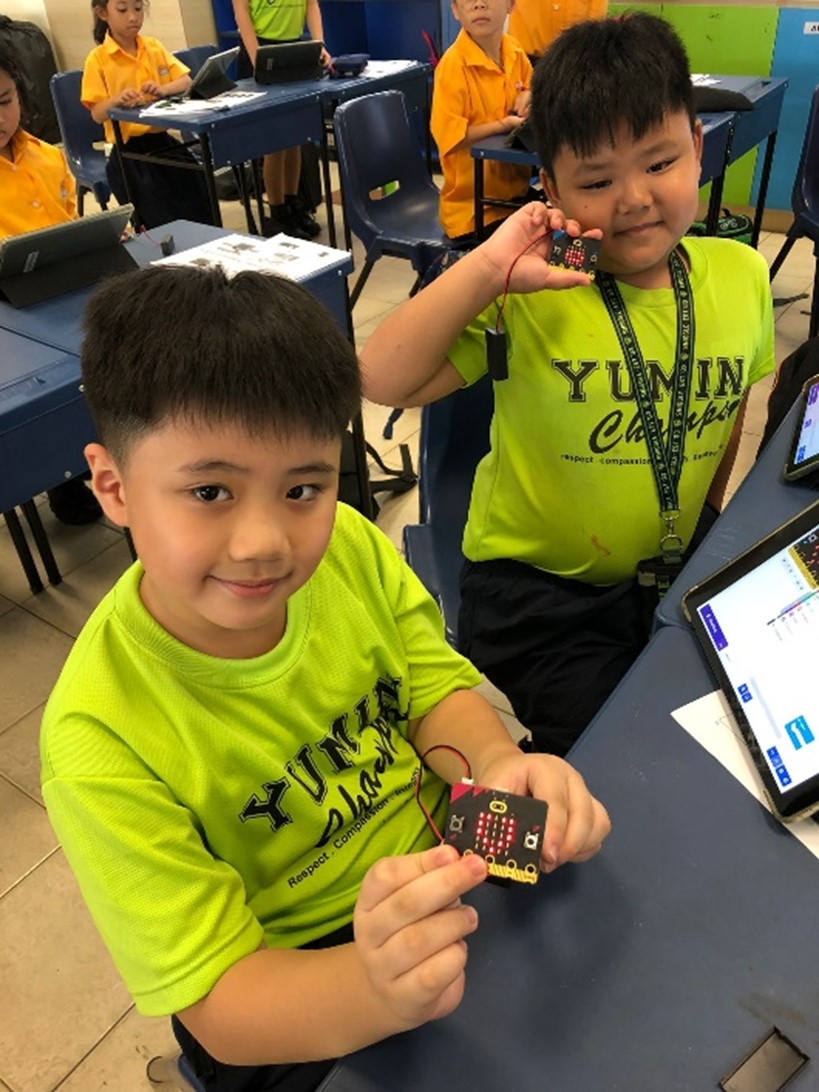
The P3 students also explore AI technology during Be an Eco novelist programme. The students generate images using AI for their self-created stories on sustainability. This encourages creativity and allows them to visualise and bring their sustainable narratives to life, enhancing their understanding of the impact of their actions on the environment.
P4 ALP: Be an Eco Creator
In our P4 ALP program, students focus on reducing and recycling by using recycled cardboard to create carnival games. They also learn how to code a micro:bit to track scores for these games, incorporating their P4 science knowledge on the properties of light. This interdisciplinary approach fosters innovation and practical application of their learning.
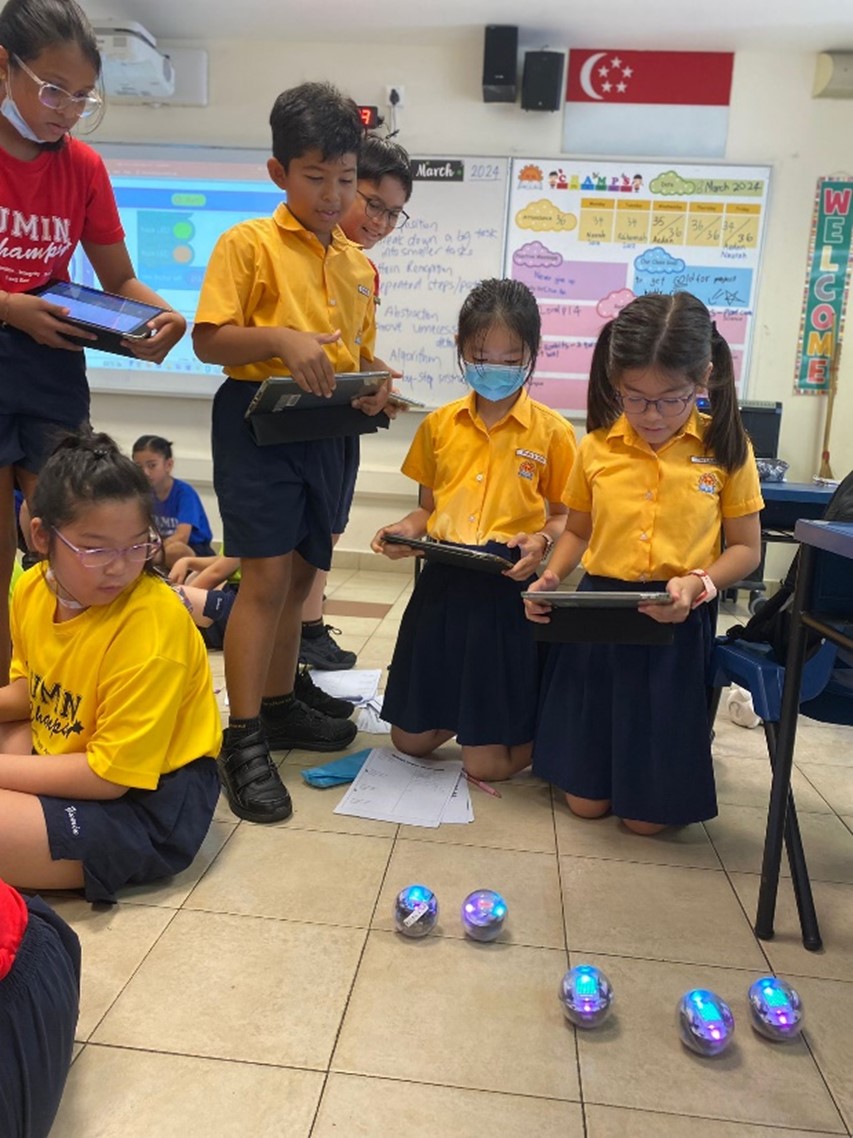
P5 ALP: Be an Eco Engineer
In our P5 ALP program, students deepen their understanding of reduce and recycle by training an AI machine to distinguish between recyclable and non-recyclable materials. This project enhances their digital literacy skills, offering a practical application of technology and fostering a deeper awareness of environmental sustainability and the impact of their choices.
P6 ALP: Interest Based Projects (Be an Agriculturist, Be an Eco Designer, Be an Eco Programmer)
In our P6 ALP program, students engage in a variety of projects focused on sustainability and STEM after their PSLE. They have the freedom to choose their preferred project, allowing them to explore their interests and strengths.
Students can choose between three engaging projects: Be an Agriculturist, Be an Eco Designer, or Be an Eco Coder. In Be an Agriculturist, students focus on food sustainability and tend to the school hydroponics system. In Be an Eco Designer, students upcycle fabric to create tote bags. In Be an Eco Coder, students use LEGO SPIKE to explore various sustainability issues and develop innovative solutions.
This initiative fosters critical thinking, innovation, and a deep understanding of sustainable practices in diverse fields. These diverse opportunities encourage students to apply their knowledge creatively and contribute a more sustainable future.
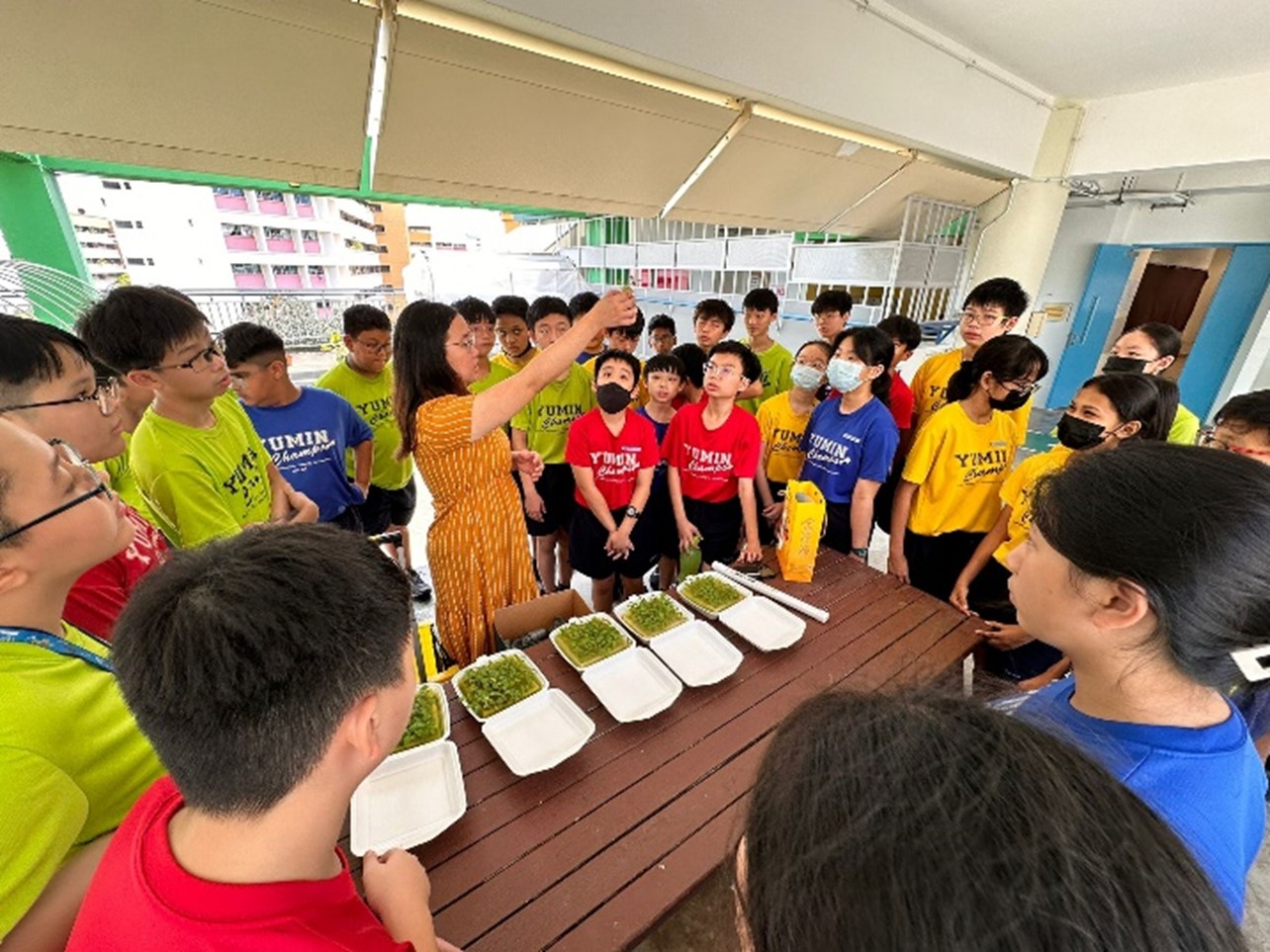
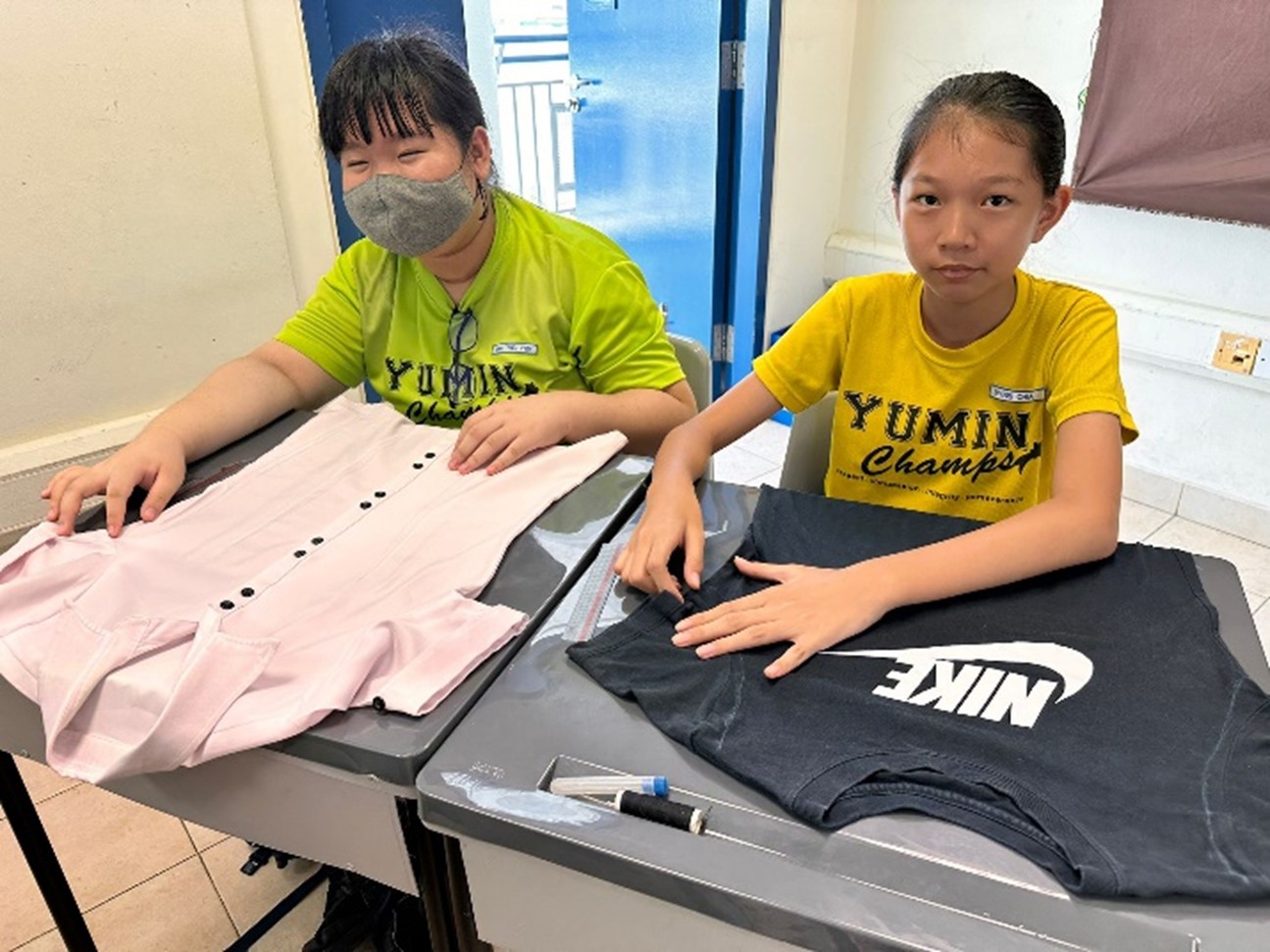
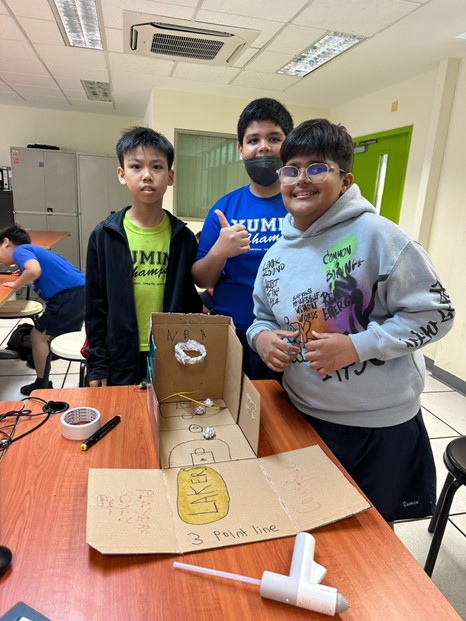
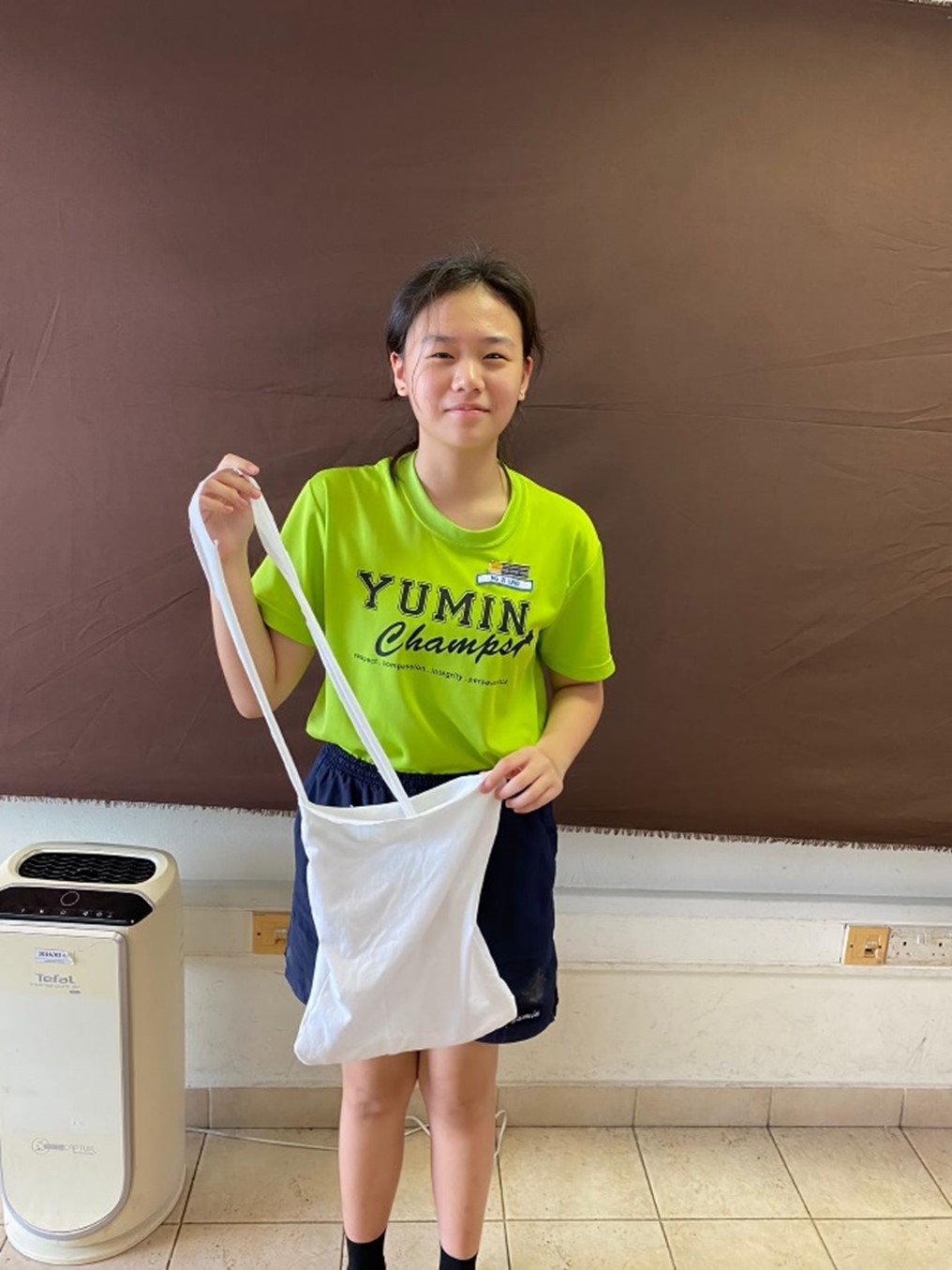
Sustainability Week
During sustainability Week, students delve into Singapore's biodiversity and sustainability challenges through engaging lessons and hands-on activities in class. Recess is filled with exciting events such as bioblitz, where students observe local flora and fauna, and sustainability exhibitions showcasing eco-friendly projects from Be The...Future ALP programme. This week fosters a deep appreciation for our natural environment.
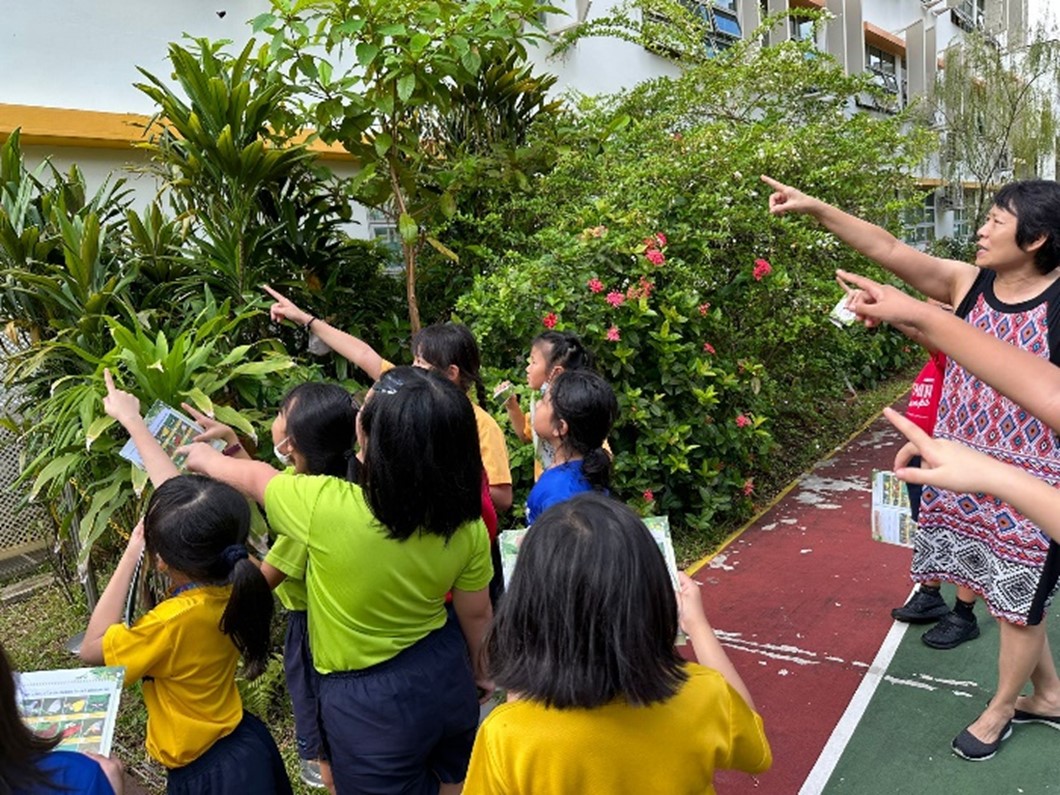
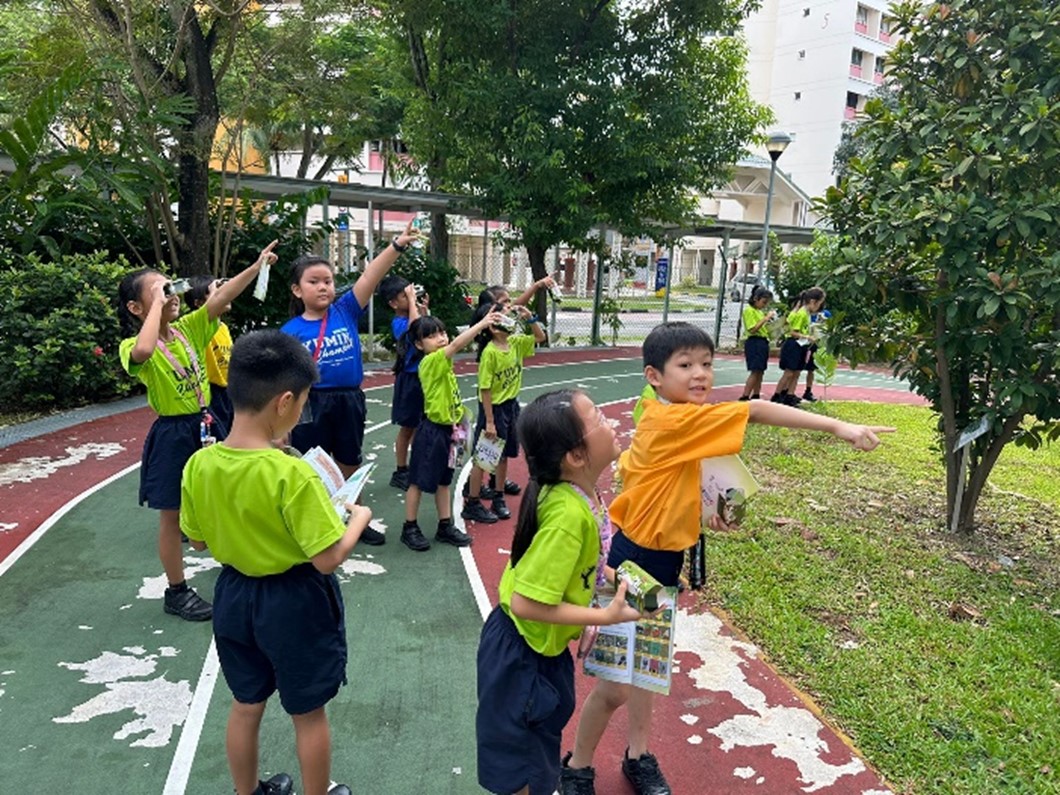
Recycle Right
Recycle Right is a series of bite sized morning assembly sharing to promote and encourage proper recycling habits. Teachers, student leaders and Environmental Club members take turns to curate presentations to teach the student population on proper recycling habits.
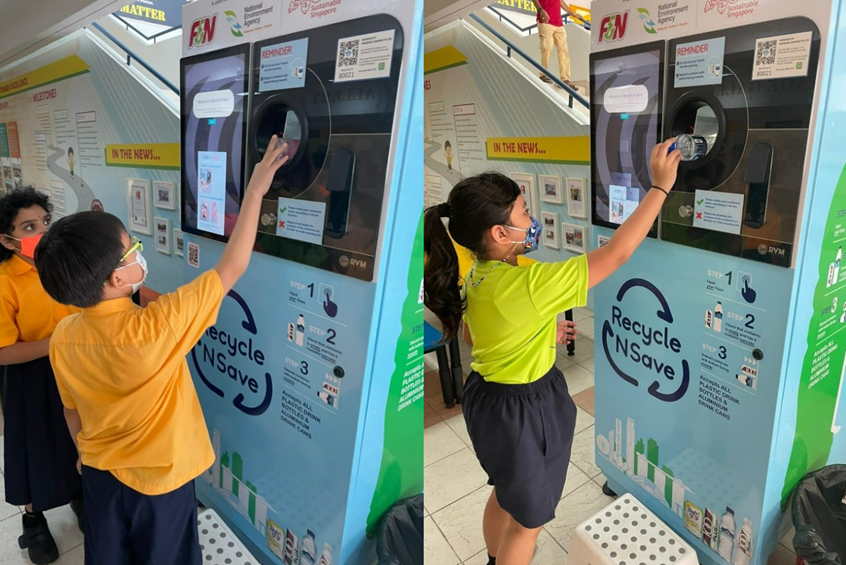
Type 2
Makerspace Recess Programme
In our P3 Makerspace program, students are invited to the Makerspace Lab to create toys using recycled materials during recess. This hands-on experience hones their tinkering and problem-solving skills while promoting sustainability. The program encourages creativity and innovation, helping students understand the value of reusing materials for a more sustainable future.
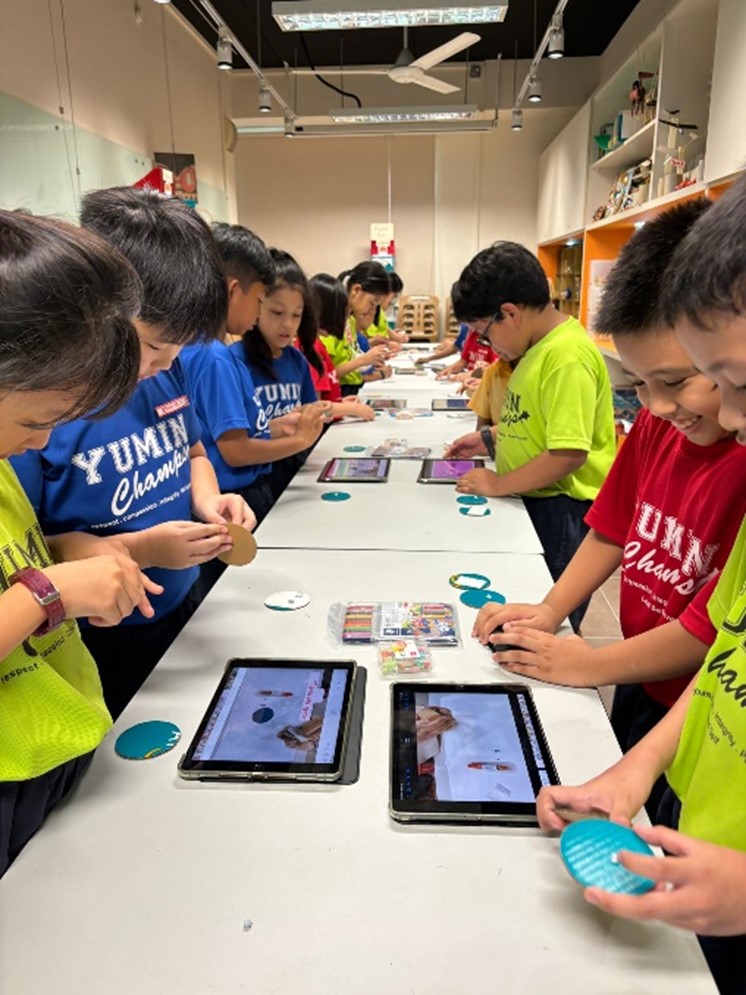
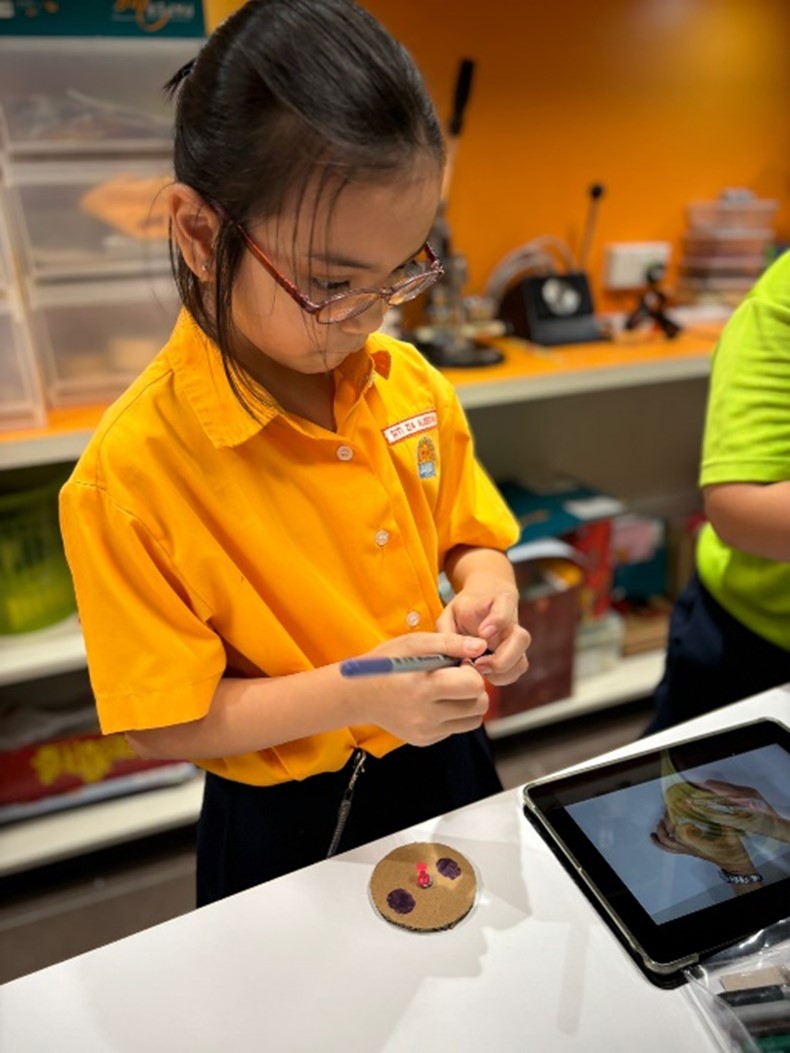
Type 3
Type 3 programmes typically refer to programmes targeted to a selected group of students. These students were selected based on their interest, aptitudes and abilities. Yumin Primary School provide them the opportunity to further develop their critical and creative thinking skills and problem solving.
The table below summarises the Type 3 opportunities selected students to get to participate in.
|
Competitions |
Brief description |
|---|---|
|
Eco Champions (class committee) |
Eco Champions are chosen from each class as part of the class committee. Their role is to lead and promote effective recycling efforts using the class Bloobin. Maintaining the Bloobin is also part of the school's Project Buddy Clean, a collaboration between the Innovation Committee and the CCE department. |
|
Project E.C.O |
Selected Eco Champions and student leaders form teams to conceptualise and drive Eco projects to the whole school. |
|
WWF Eco School |
Environmental club members participate in the WWF Eco School award to conceptualise student activities and student-led presentations to promote sustainability. |
|
Sony Creative Science Awards |
Student participants are challenged to create toys using recycled materials based on a given theme. |
|
National Thinkers Challenge |
Student participants are challenged to create a solution to a given problem. Use of technology such as using of mibro:bit and training teachable machine (AI) is allowed. |
Table 2: Type 3 Opportunities
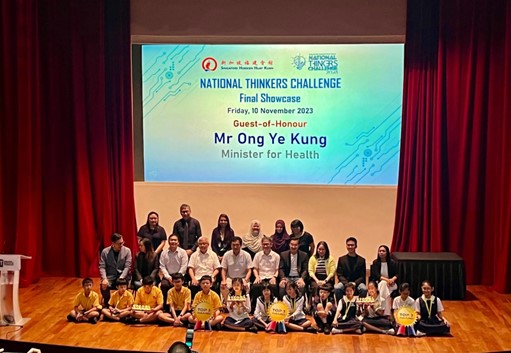
National Thinkers Challenge 2023 Top 3
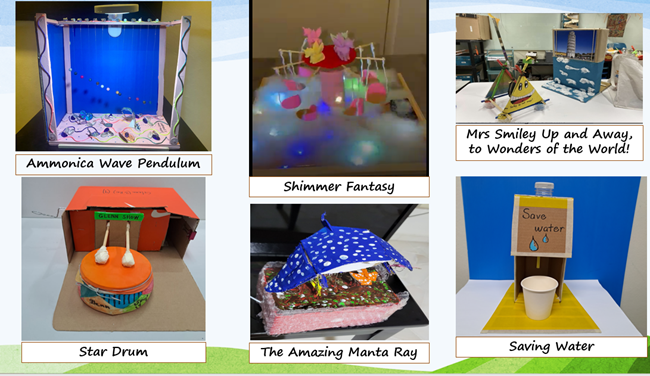
Sony Creative Science Award 2023

